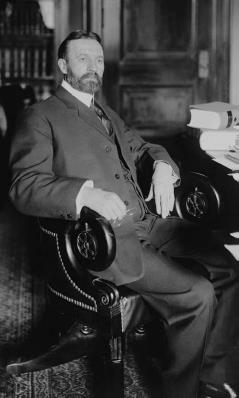The Taft Court unanimously struck down the Kansas Industrial Relations Act of 1920 in Chas. Wolf Packing Co. v. Court of Industrial Relations of State of Kansas (1923). The law created an arbitration court that regulated the wages, hours, and other matters of employment for businesses involved in food, clothing, and fuel. The court had the power to restrict strikes and lockouts by employers. Chief Justice Taft reasoned that this broad law imposed “drastic regulation” on business and restricted the liberty of contract rights of both employers and employees: “These qualifications do not change the essence of the act. It curtails the right of the employer on the one hand, and of the employee on the other, to contract about his affairs.” The state sought to justify the law because the businesses affected public interest, but the chief justice warned that such an argument was an example of “running the public interest argument into the ground.”

George Sutherland (above) wrote on behalf of the majority of the U.S. Supreme Court in Adkins v. Children’s Hospital of the District of Columbia (1923) that a Washington, D.C., minimum wage law for women and children violated the liberty of contract rights of employer and employee. Library of Congress.

